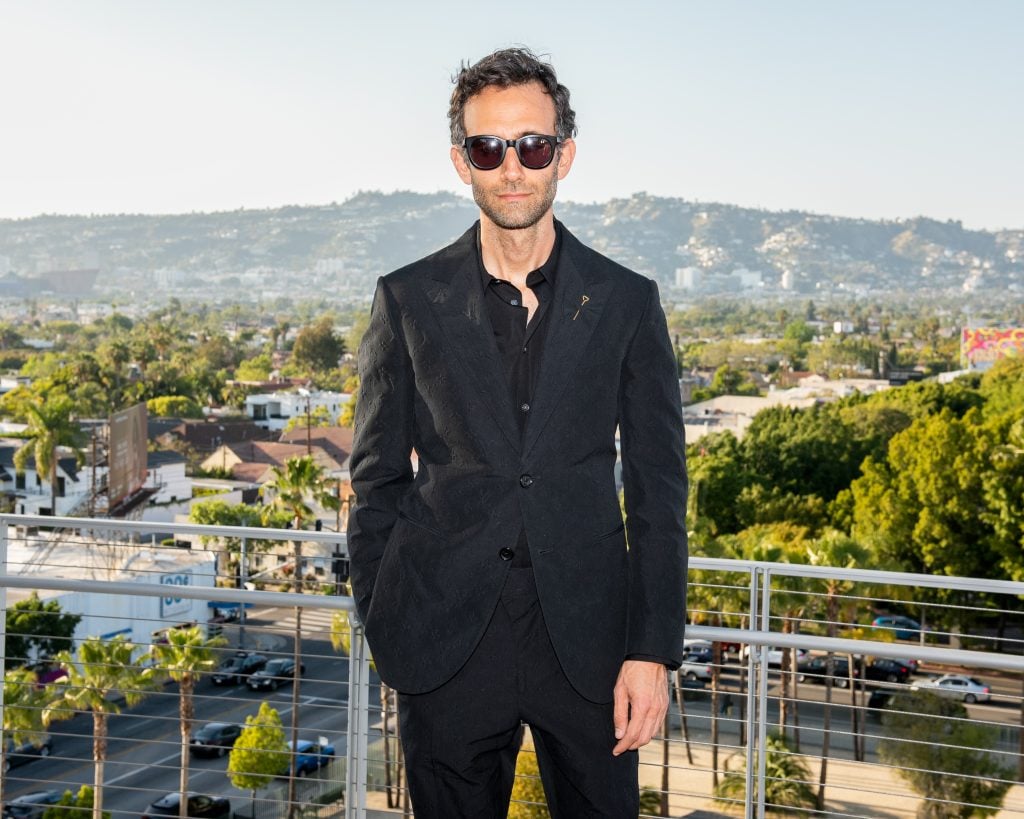Art & Tech
‘An Opportunity Not to Be Missed’: Artist Alex Israel Is Touting His New Gagosian Show With a Press Release Generated by ChatGPT
The exhibition's wall text will also be generated by the language model.

The exhibition's wall text will also be generated by the language model.

Richard Whiddington

Los Angeles artist Alex Israel has harnessed the writing abilities of ChatGPT for his upcoming exhibition “Fins,” set to run at the Gagosian gallery in Rome from May 12 to July 28.
The press release for the show, as issued by the gallery, reads as any other, outlining the scope of the show, citing its art-historical connections, and hyperbolically trumpeting its importance as “an opportunity not to be missed.” Except, as the heading made clear, it wasn’t written by the artist, a studio hand, or some gallery lackey, but by ChatGPT.
ChatGPT has also been used to write some of Israel’s exhibition text and the move is the latest incursion of artificial intelligence in the contemporary art space. It promises to change not only the labor of the artist, but those who work in the surrounding industry.
Although at the time of writing, Israel had not responded to a request for comment, in an earlier exchange with The Art Newspaper, Israel had ChatGPT generate a statement for him. “In many ways,” it read, “A.I. has become a medium in and of itself. By using A.I. to generate the press release, I’m commenting on the intersection between technology, art, and media.”
The show “Fins” is comprised of large, brightly colored plastic surfboard fins. The artist presents the fins as sculptures, each with their own personality and backstory. In both name and aesthetic style, the works connect to Finish Fetish artworks from the 1960s, a Southern California-born movement that used industrial processes and materials, such as fiberglass or resin, to create glossy paintings and sculptures.
Much of Israel’s career has explored and critiqued the culture of his hometown of Los Angeles. His early 2010s project, “As It Lays.” featured video interviews with city celebrities in their homes and workplaces. This was followed by 2020’s “Always On My Mind” that placed iconic cityscapes in canvases shaped like the artist’s head. “Fins” sees Israel turn his gaze back onto surfing, a subject he previously explored in his debut film SPF-18.
While some artists, including Paul Kremer, have experimented with using ChatGPT in their visual practice, Israel’s blatant use of the language model as a de facto press agent marks a first.
“Ultimately,” read his generated statement, “I think it’s up to the reader to decide whether the press release was successful or not.”